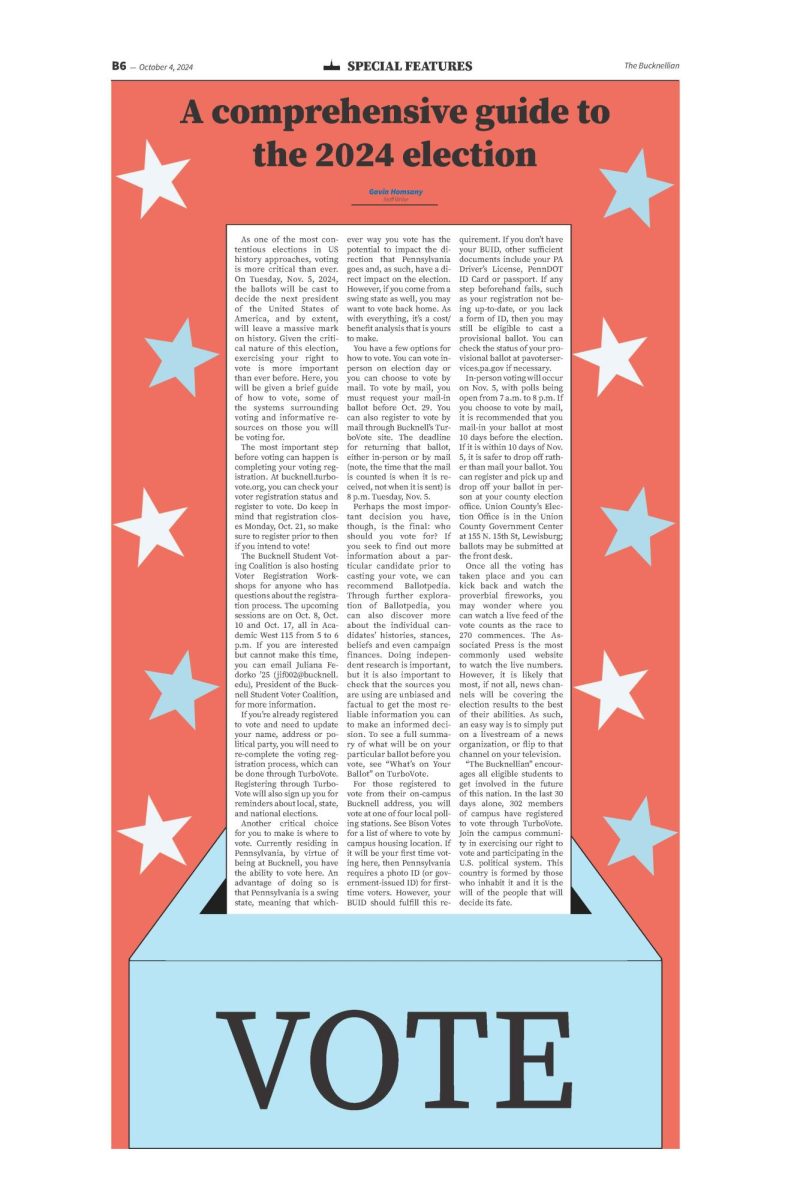BIPP: Why the Supreme Court nomination needs to wait until after the election
October 13, 2020
This week, the U.S. Senate began its hearings for Supreme Court nominee Amy Coney Barrett. On Oct. 12, Barrett completed her first day of confirmation hearings. This article is not intended to discredit the qualifications of Barrett, but rather to demonstrate why she should not even be considered in the first place — or at least not right now.
The first issue regards the length of time given to consider Barrett’s appointment. Supreme Court nominations are lifetime appointments. Even the most exemplary candidates must be thoroughly vetted given the impacts their judgments on the court could have for generations of Americans to come. When Barrett was first nominated on Sept. 26, there were only 38 days until the general election. At the start of her hearings, there were only 22 days until election day. Compared to nominations of the past five administrations, this is unprecedentedly fast. In the past 40 years, the fastest nomination to date was the late Ruth Bader Ginsburg, whose confirmation took 42 days. The position of Supreme Court Justice is vitally important to American democracy, and the process of choosing the people who will have the honor of becoming that role cannot be rushed due to partisanship. It is important to note that the senators aiming to expedite the confirmation of Barrett at record speed are the same senators who felt that confirming Merrick Garland in March of 2016 was too close to the November 2016 election — embodying the definition of hypocrisy.
The second issue, of course, is the irregularity of this upcoming election. The 2020 election is like no other. At no fault of either party, a global pandemic has completely altered how the United States must run its elections. According to the New York Times, over 80 million Americans have already requested mail-ballots. As a result, unlike in other years, many voters had already cast their ballots before the start of the confirmation hearing process. Not only do voters not get to have their voices heard on who should choose the next justice, but they will also not have the opportunity to change their vote depending on the outcome of these hearings. Supreme Court nominations in recent years have been highly contested, and the information that is made public in those hearings may influence voters’ preferences in the presidential and congressional elections this fall. Those voters deserve to have their opinions counted; if the confirmation occurs before the election, they will be robbed of that possibility.
The final — and arguably most important — issue relates to court-packing. In 2017, in an effort to push U.S. President Donald Trump’s nomination of Justice Neil Gorsuch through the Senate, Republicans voted to change procedural rules and eliminate the filibuster for Supreme Court appointments. Instead of needing 60 votes to close debate and advance a nomination, they now only needed a simple majority (which could be attained with a VP vote, in the case of a 50-50 tie). This change from the decades-old cloture tradition, combined with their hypocrisy in choosing to hold an election-year confirmation in 2020, has, for lack of a better word, pissed Democrats off. If the Senate Republicans are successful in confirming Barrett before the election, and Democrats win the White House and Senate (the combination of which is competitive, but very possible), there could be a disastrous backlash from Senate Democrats. Many liberal Senators have supported the idea of expanding the Supreme Court, and former Vice President Joe Biden has yet to come out with a hard stance on the matter — meaning that this scenario is very possible. Packing the Supreme Court, while a short-term fix to ideologically balance Barrett’s confirmation with more liberal justices, presents a dangerous precedent. The number of Supreme Court justices should not be in flux every four years based upon which party controls the White House. The Supreme Court of the United States has the responsibility of interpreting the Constitution and ruling against laws when they are in violation of the Constitution. It is not meant to be a partisan correction for a previous party’s judicial appointments, nor should it be a mechanism to push partisan agendas through on contested issues.
The Supreme Court of the United States is an extraordinarily powerful and indispensable institution to the integrity of American democracy. Appointees to this court impact the lives of Americans for generations after their confirmation. Barrett’s confirmation is being rushed due to the threat of a Democratic president appointing a liberal justice to the court if Trump loses. While this is a travesty because it does not allow for the due process of vetting for such an important position, it also degrades the value of the individual vote and opens up the door to detrimental backlashes from the opposition party.


























